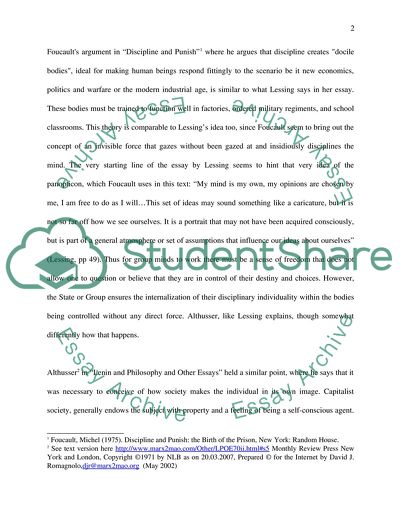Cite this document
(“What does Doris Lessing mean by the title of her chapter, Group Minds Essay”, n.d.)
What does Doris Lessing mean by the title of her chapter, Group Minds Essay. Retrieved from https://studentshare.org/miscellaneous/1539811-what-does-doris-lessing-mean-by-the-title-of-her-chapter-group-minds-explain-in-your-own-words-in-a-paragraph-first-then-reference-the-article-select-a-film
What does Doris Lessing mean by the title of her chapter, Group Minds Essay. Retrieved from https://studentshare.org/miscellaneous/1539811-what-does-doris-lessing-mean-by-the-title-of-her-chapter-group-minds-explain-in-your-own-words-in-a-paragraph-first-then-reference-the-article-select-a-film
(What Does Doris Lessing Mean by the Title of Her Chapter, Group Minds Essay)
What Does Doris Lessing Mean by the Title of Her Chapter, Group Minds Essay. https://studentshare.org/miscellaneous/1539811-what-does-doris-lessing-mean-by-the-title-of-her-chapter-group-minds-explain-in-your-own-words-in-a-paragraph-first-then-reference-the-article-select-a-film.
What Does Doris Lessing Mean by the Title of Her Chapter, Group Minds Essay. https://studentshare.org/miscellaneous/1539811-what-does-doris-lessing-mean-by-the-title-of-her-chapter-group-minds-explain-in-your-own-words-in-a-paragraph-first-then-reference-the-article-select-a-film.
“What Does Doris Lessing Mean by the Title of Her Chapter, Group Minds Essay”, n.d. https://studentshare.org/miscellaneous/1539811-what-does-doris-lessing-mean-by-the-title-of-her-chapter-group-minds-explain-in-your-own-words-in-a-paragraph-first-then-reference-the-article-select-a-film.


